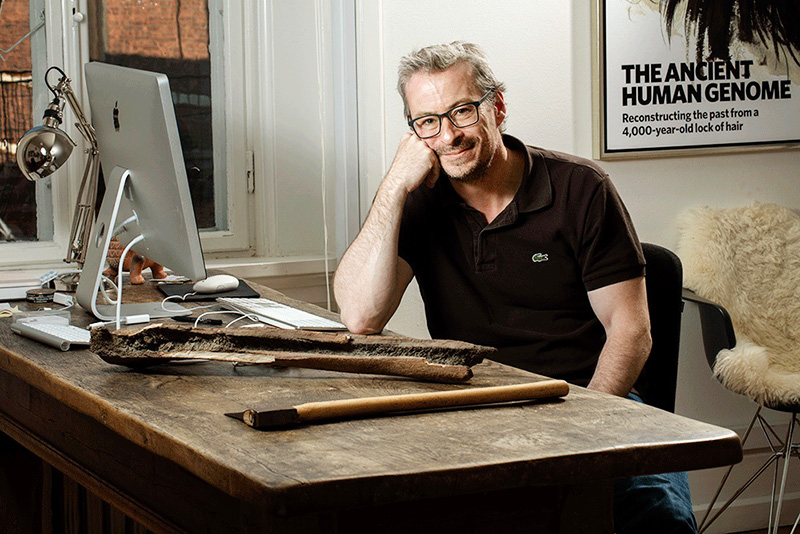Geneticist to head up pioneering new research into sustainable crops and ecosystems
“This will have a transformative impact on our understanding of past ecosystem change and its application to agricultural sustainability”
St John’s Fellow Professor Eske Willerslev is leading a major new research project into how ancient environmental DNA can be harnessed to develop climate change-resilient crops.
A grant of up to DKK (Danish krone) 585 million – more £66.3 million – has been awarded to the Ancient Environmental Genomics Initiative for Sustainability (AEGIS) by the Novo Nordisk Foundation and the Wellcome Trust.
Global food security is at risk due to the combined effects of climate change and the biodiversity crisis. AEGIS will address these issues by exploring how ecosystems and species adapted to climatic changes in the past and how this knowledge can be applied to agricultural challenges today.

The initiative will be led by Professor Willerslev, Prince Philip Professor of Ecology and Evolution at the University of Cambridge and Director of the Centre for Excellence in GeoGenetics at the University of Copenhagen.
Professor Willerslev said: “There is enormous potential for eDNA research. Combining the computational genomics and genetics skills of partners in Cambridge with the ancient DNA expertise of Copenhagen will enable the AEGIS project to lead this field forwards, with a transformative impact on our understanding of past ecosystem change and its application to agricultural sustainability.”
The AEGIS project aims to extract and analyse ancient environmental DNA (eDNA) from sediment cores, offering a window into the Earth’s agrarian history and the response of ecosystems to changes over hundreds to millions of years.
Cambridge’s Department of Genetics, where Professor Willerslev will shortly take up a visiting position as a Director of Research, has been awarded a grant of £5.5 million as part of AEGIS. The Department is at the centre of a group of world-leading partners in Cambridge contributing to the project: NIAB in crop sciences, the Wellcome Sanger Institute for genome sequencing, and the EMBL European Bioinformatics Institute for data. They will all work alongside others with the project hub at the GeoGenetics Institute in Copenhagen.
Professor Richard Durbin, Professor of Genetics at Cambridge’s Department of Genetics, said: “The recent advances in DNA technologies and computational analysis methods have created the opportunity to use genomics to look at the living world in new fundamentally new ways, as they are now and in the past.”
The Novo Nordisk Foundation, which is an independent Danish non-profit organisation that supports philanthropic objectives, has awarded a DKK 500 million grant over seven years, with the Wellcome Trust funding another DKK 85 million.
Mads Krogsgaard Thomsen, CEO of the Novo Nordisk Foundation, said: “AEGIS will sequence vast amounts of ancient environmental DNA and make that data globally accessible. By combining the data with novel bioinformatic tools and AI, we can make a quantum leap in our understanding of how ecosystems and individual species function and how they have adapted to environmental challenges, similar to the ones we expect in the near future.
“This deep understanding of nature and the environment will enable the creation of resilient crops that can withstand and mitigate climate change.”
Published 21/6/2024